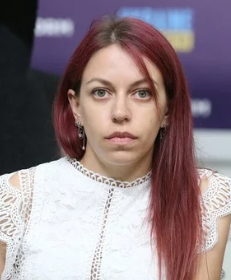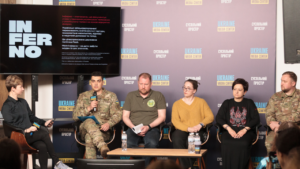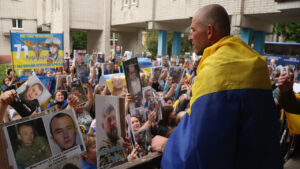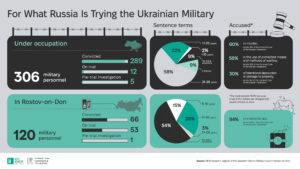Three Sleepless Years, Cancer and Despair: Families of Captive Marines Speak of “Dual Torture”
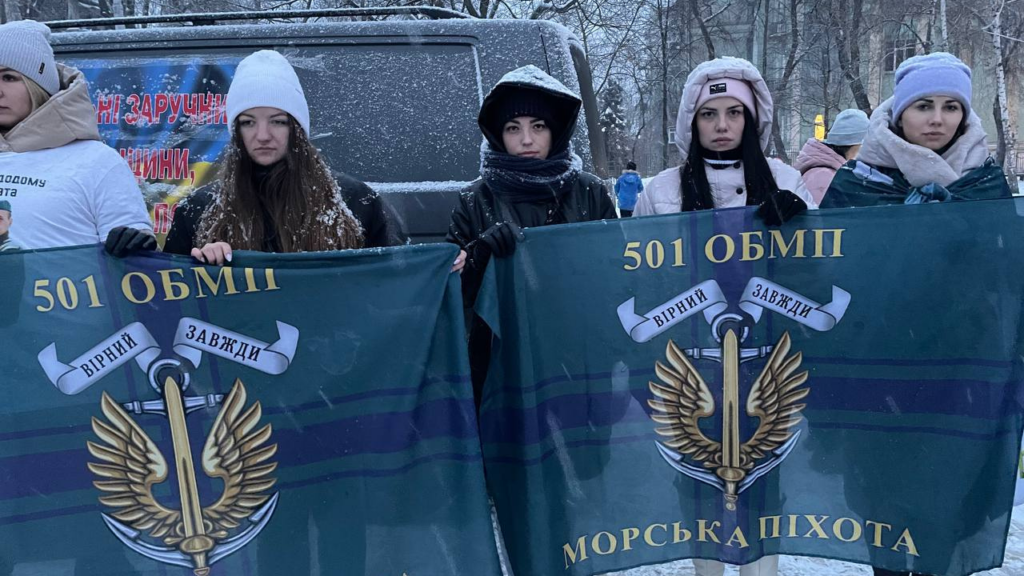
Around 1,300 Ukrainian marines remain in Russian captivity. For the past three years, their families have been fighting to bring them home. But alongside this uphill battle is another, quieter war – the fight to preserve their health. Families describe their experience as a form of dual torture: while the marines endure physical and psychological abuse in Russian prisons, the pain and suffering reverberate back home.
MIHR has documented the stories of women who, despite being diagnosed with cancer, experiencing nervous breakdowns, and facing serious health problems, continue to fight for the return of their loved ones.
“I began speaking about the concept of ‘dual torture’ over a year ago. The number of Ukrainian marines held in Russian captivity is staggering. Through close cooperation with their families, I have witnessed the devastating toll this ordeal has taken on their lives. Russian captivity is not just about torture and isolation, though those things alone are barbaric realities in today’s world. Families are deprived of any form of communication with captives and live in a constant state of uncertainty with no reliable information about the health or even the survival of those they love. This unbearable limbo is corrosive as it deeply undermines the psychological and physical well-being of these families,” says Victoria Cheremisina, Deputy Head of the NGO “Families of Officers and Artillerymen of the 36th Marine Brigade.
Victoria knows from personal experience what it means to live in uncertainty and to exhaust every ounce of strength to search for a loved one. A close family member of hers was taken captive in April 2022 during the defense of Mariupol.
“At that time, there were no clear guidelines on how to navigate such a situation. The Coordination Headquarters for the Treatment of Prisoners of War had just begun its operation, and no processes were in place. We were told our loved ones would be in captivity for no longer than a month. But as time passed, it became clear that this would not be resolved quickly. We couldn’t afford to wait in silence and inaction, so we began creating our guidelines on what documents to gather, where to submit them, and how to reach out to the ICRC,” says Victoria.
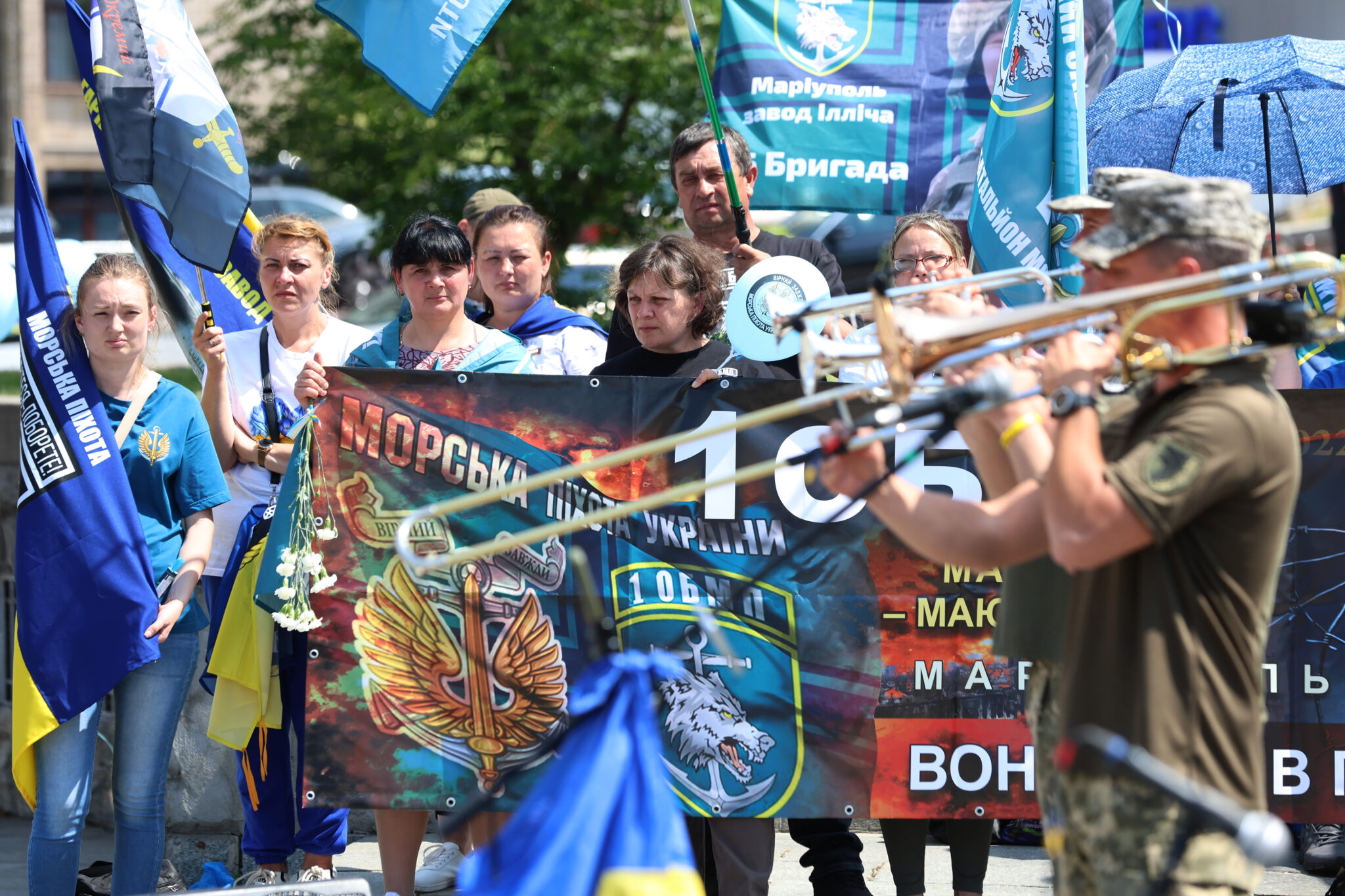
A demonstration by families of captured marines. Photo by Victor Kovalchuk
Families began forming support communities, uniting in their search for ways to locate and bring their loved ones home. During meetings at the newly established Coordination Headquarters for the Treatment of Prisoners of War, they connected with other communities who have been waiting for the return of their relatives since as far back as 2014.
“We had to comb through hostile Telegram channels, scrolling through hundreds of images of prisoners and the deceased, to share any information we could find with other families. We organized ourselves into groups, coordinated our efforts, and traveled to Kyiv to meet with various agencies and with the Ukrainian Ombudsman,” says a representative of the families of the captured marines.
Victoria combined full-time work, responsibilities within a family that includes individuals with disabilities, and tireless advocacy efforts by attending rallies in support of prisoners of war and the missing, and meetings with officials. This relentless pace took a serious toll on her health. She lost a significant amount of weight, her immune system weakened, and a chronic illness she had long managed began to flare up more frequently. Still, the idea of rest felt impossible to entertain. In her opinion, as long as her loved one remained in captivity, she had no right to pause.
“That was a misguided perspective on my part. You can sustain that kind of pace for six months, maybe a year. But eventually, it becomes clear that your health deteriorates, your body weakens, and you are faced with a new challenge of saving yourself. Because when the person you have been waiting for, the one you have fought so hard to bring home, finally returns, and you find that communication between you does not work, it breaks you even more. You realize that you have not truly been living all this time – you have been existing to save someone else,” says Victoria.
The person Victoria fought for was eventually released through a prisoner exchange, but their relationship did not survive in the aftermath.
“Now my health is slowly recovering, although the effects of everything I’ve been through still linger,” she says. “The person I fought for is finally safe. And only now, after all these years of tension, fear, and exhaustion, I allow myself to breathe a sigh of relief for the first time.”
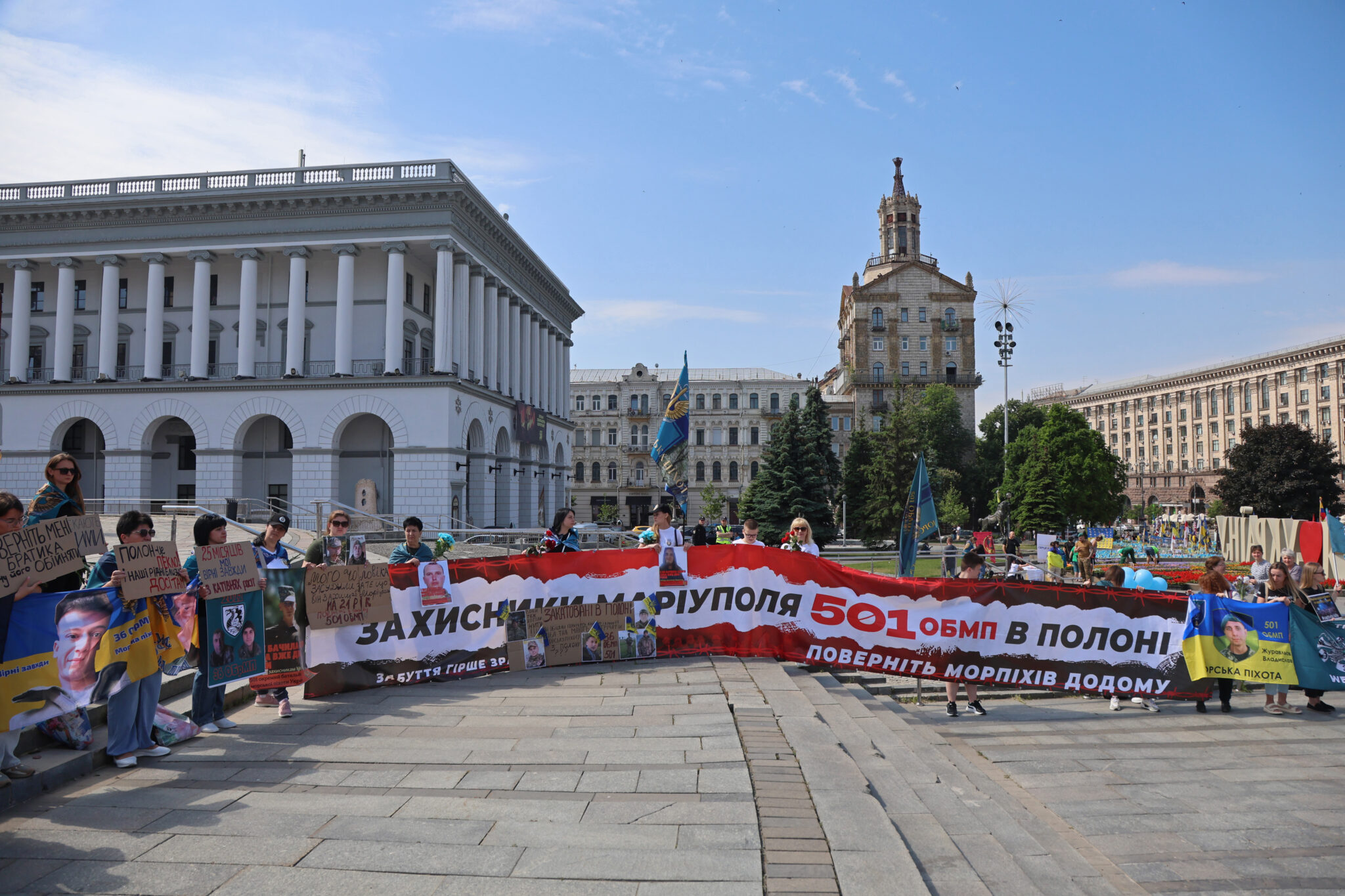
A demonstration in support of captured and missing infantry soldiers on Maidan Nezalezhnosti in Kyiv. Photo by Victor Kovalchuk
Although Victoria’s personal story ultimately ended in separation, she continues to support the families of prisoners of war. Her own lived experience has given her an understanding of the immense emotional burden they carry and the challenges they face.
“I began collecting data within our communities to track the types of illnesses most commonly affecting the families of those in captivity. The most critical issue is cancer. We emphasize this everywhere we go, because we want wives to see their husbands. Other widespread conditions include diabetes, psoriasis, and cardiovascular diseases. Some mothers have not lived long enough to see their children return home,” says Victoria.
Victoria also emphasizes that many of these families have small children, and the absence of a father deeply affects them, both psychologically and physically. These women are forced to shoulder everything on their own: raising children, managing households, and simultaneously fighting for the return of their husbands. And when their health begins to fail, they are left with almost no strength to continue.
“You have to resist the urge to spiral. Always hold on to hope, but at the same time, begin to prepare yourself for tough realities. What I mean is this: the wait may be long, and you need to pace yourself so your strength lasts the entire journey. The realization that you should have taken care of yourself, for the sake of continuing the fight, often comes too late. That’s why it’s so important to find a balance between advocating for your loved one and looking after your health. Only by preserving our strength and well-being can we be the steady support our families need during this difficult time,” advises Victoria to families.
I am a Stranger Among Civilians
Olha Kurmalaieva is the wife of Ruslan Kurmalaiev, a marine from the 501st Separate Marine Battalion who has been held in captivity for 36 months. Ruslan is originally from Crimea. After the peninsula was occupied, he and his fellow soldiers relocated to Berdyansk. It was there that he met Olha, and the two eventually married.
Just before the full-scale invasion, Olha was diagnosed with cancer. When the war began, she was in Berdiansk, and Ruslan was in Mariupol. On April 4, 2022, contact with him was lost. It was later confirmed that nearly the entire 501st Separate Marine Battalion, where Ruslan served, had been captured.
“My husband was taken prisoner, and I was evacuated from occupied Berdyansk. The stress I endured caused my cancer to progress to stage four. I spent a year and a half in treatment and underwent more than 25 rounds of chemotherapy,” says Olha
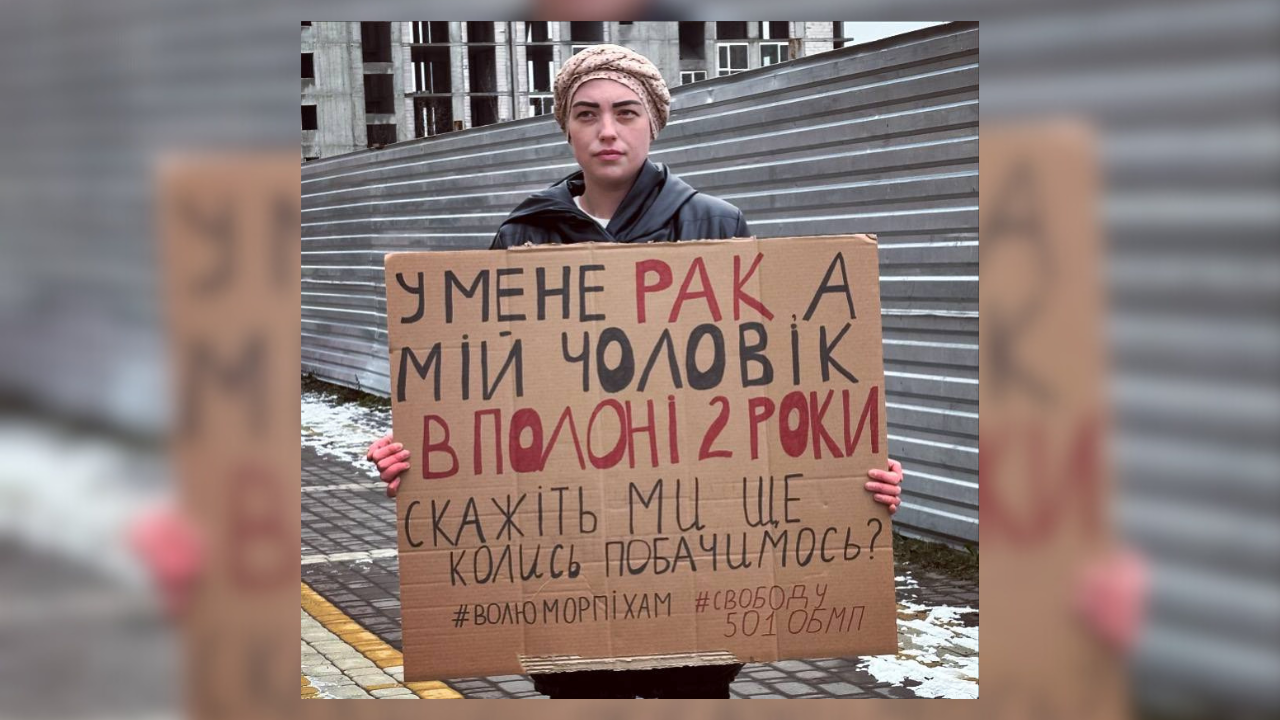
Olha Kurmalaieva, the wife of a captured marine
That period felt like a nightmare for her. Olha had to leave her home, with no information about her husband’s fate. She couldn’t eat and spent days in tears, imagining the horrors her husband might be enduring in captivity.
The capture of the 501st Battalion was initially framed as a voluntary surrender, which triggered an investigation by the State Bureau of Investigation. Families were stripped of financial support – a devastating blow, especially for Olha, whose cancer treatment in Ukraine was prohibitively expensive.
“Almost 90% of the families in our battalion are internally displaced persons. We all fled the occupation with just one suitcase and no financial support, no certainty about the future. There was a time when I was undergoing treatment and didn’t have enough money. And the women faced situations where they didn’t know if they would be able to feed their children. You know, only God knows how they managed to rebuild their lives in that reality. There was absolutely no support,” says Olha.
A year after the marines were captured, MIHR carried out an investigation and found out that the responsibility for the battalion’s surrender lay with Lieutenant Colonel Mykola Birukov and Senior Lieutenant Kostyantyn Bezsmertnyiі. A month after the investigation’s findings were released, the State Bureau of Investigation reinstated financial support for the families.
Despite her health condition, Olha continued to attend meetings and rallies in support of prisoners of war and the missing. When her worsening health prevented her from being present, she felt as though she wasn’t doing enough.
“There’s a powerful quote from one book: ‘We were both in captivity. He was held captive by the Russian occupiers, and I was held captive with fear and pain.’ It’s so much harder when you realize that you can’t do anything to speed up the process or even just remind people about your husband, his battalion, or the Marines in general,” says Olha Kurmalaieva.
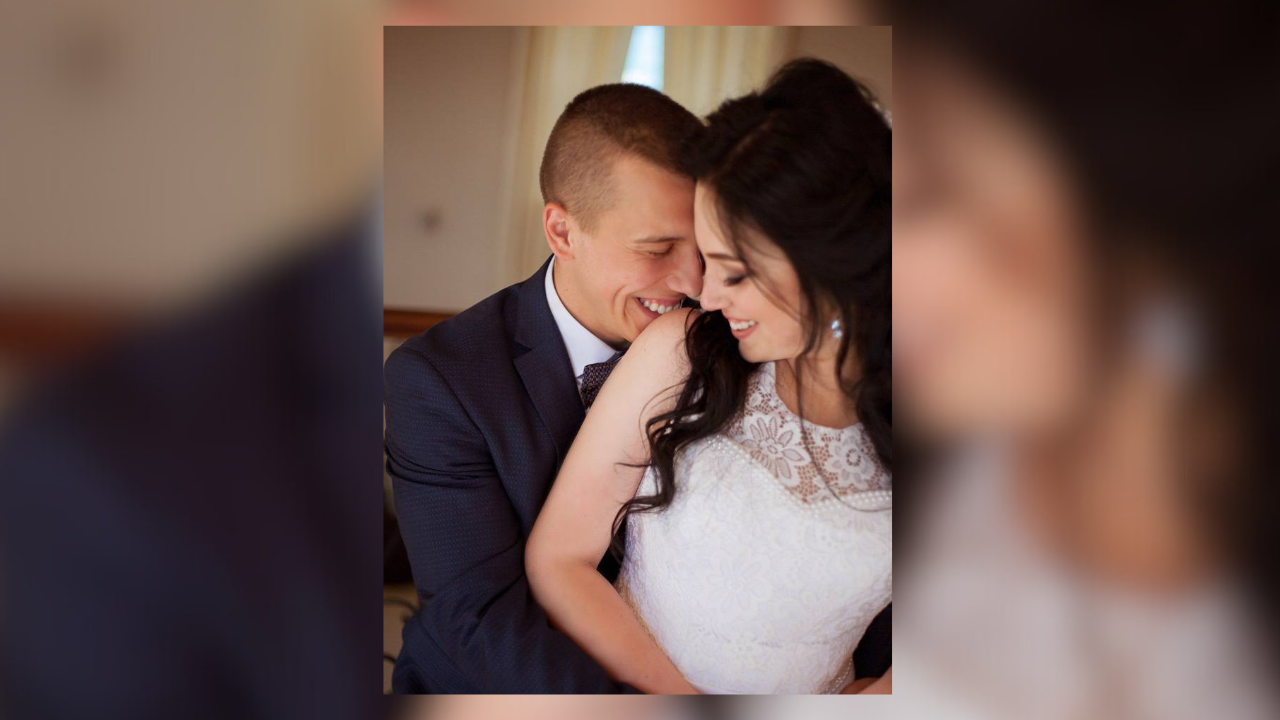
Olha Kurmalaieva and her husband Ruslan Kurmalaiev
At one point, she was told that she needed to make peace with herself. This had a significant impact on her psychological condition. She realized that refusing to eat and crying only made things worse, most of all for herself.
“You have to think about the future. The exchange is a battle won, but it’s not the war won. It’s another layer of stress because the person returns, and you have to get to know them all over again”, says Olha. “You can see where a woman has remained emotionally stable and where it has broken her. First and foremost, it affects the person who was exchanged. When they see you broken, they’ll try to help you, even though it’s them who truly need help.”
Olha Kurmalaieva also admits that she wishes there were more visible support from society:
“We’re overwhelmed with bad news every day – one tragedy replaces another. But the issue of prisoners of war mustn’t disappear from the media space. I wish society demonstrated stronger support. I understand how difficult things are, but I always say: even though I’m not a soldier, I feel a stranger among civilians because I’m so often met with misunderstanding.”
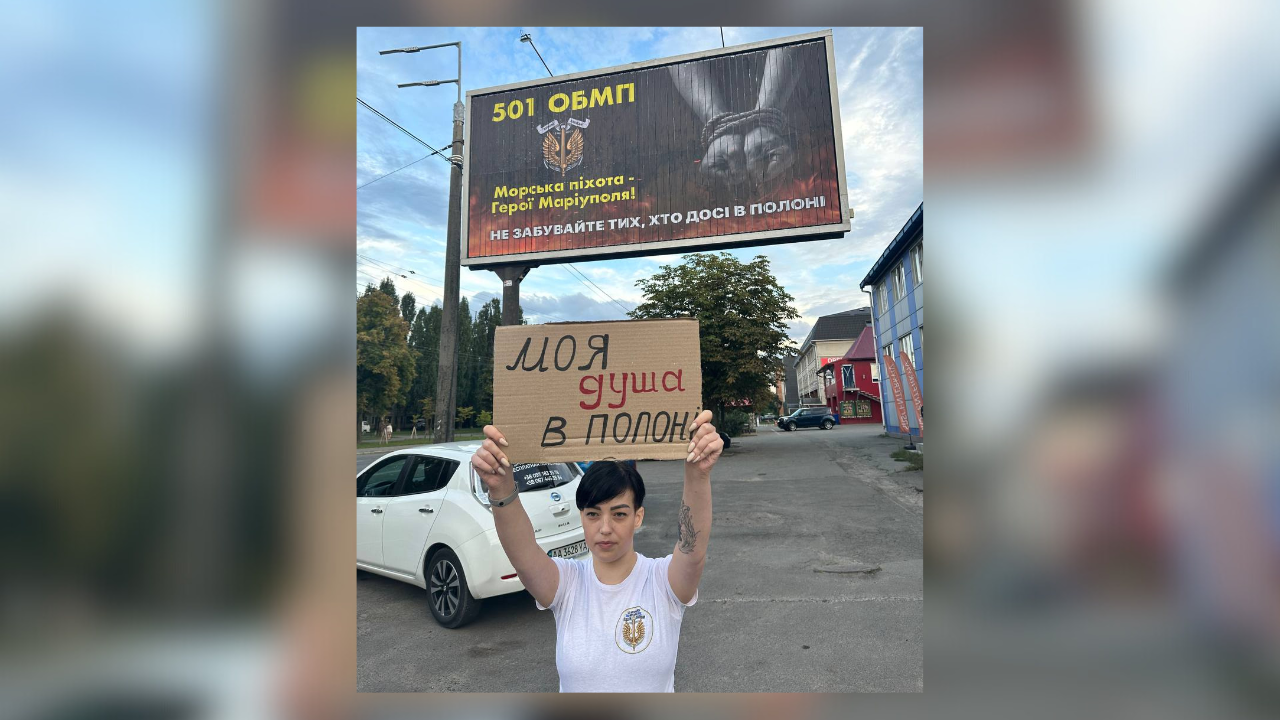
Olha Kurmalaieva, the wife of a captured marine
Olha is currently coping with complications of chemotherapy, balancing her treatment with public and volunteer work. She continues supporting the families of prisoners of war and the missing, and is making every effort to bring her husband home:
“I always say that everyone needs to find their place in this war. Because if I just sit down and cry or complain about the situation, it won’t help anyone. We have to fight with everything we’ve got – that has been my path throughout these three years of his captivity. Our captivity is shared.”
Where is Sashko?
Oleksandr Kotolup had dreamed of serving in the military since he was a child. After finishing school, he enrolled in the military academy in Lviv, despite his mother’s objections and a suspected skin cancer diagnosis. Eventually, he was assigned to the 36th Separate Marine Brigade. Then came the war, Mariupol, and captivity.
For Valentyna, Oleksandr’s mother, the news of her son’s capture was a devastating blow. He had always been her pillar of strength, helping her care for his older sister, Svitlana. Oleksandr’s stepfather is a Chernobyl disaster liquidator and lives with a second-degree disability. Valentyna herself was diagnosed with cancer several years ago, but thanks to timely treatment, the disease went into remission. However, new health complications have since emerged.
“It’s incredibly difficult to attend all these meetings and rallies. As soon as I get to the Coordination Headquarters, I have to take off my shoes immediately – the spasms start so severely that I can barely endure the pain,” says Valentyna.
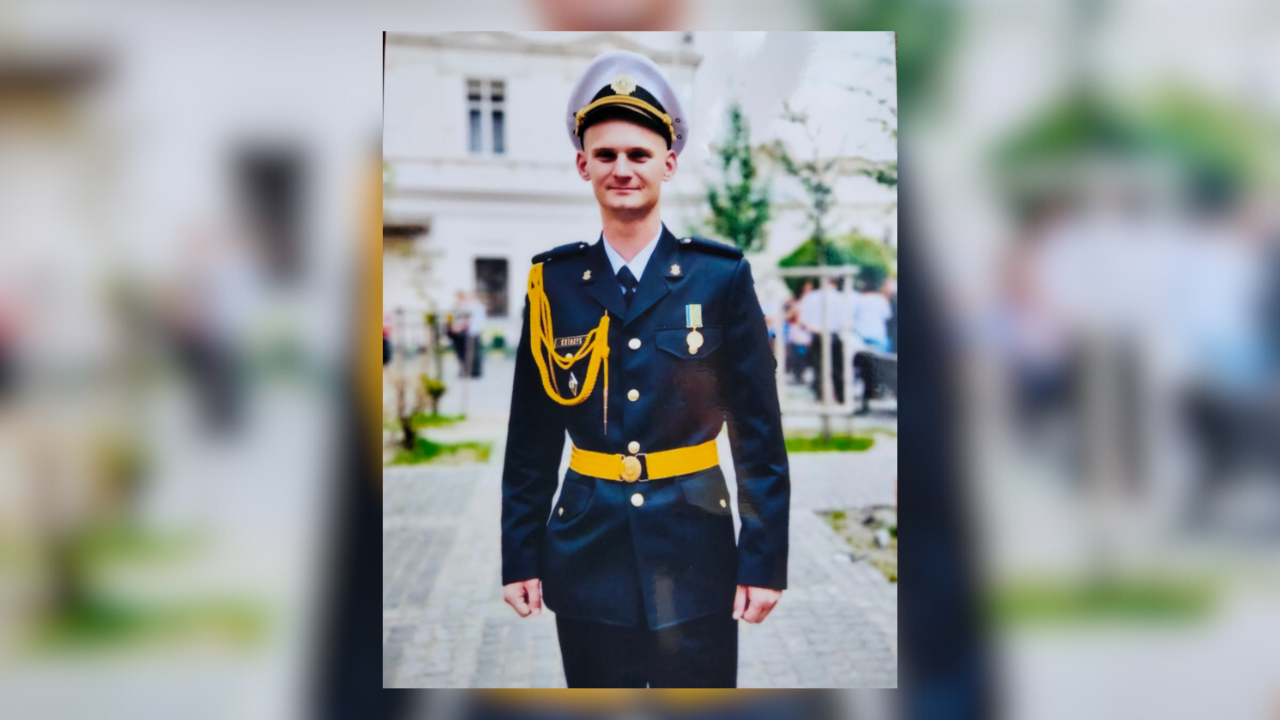
Oleksandr Kotolup, a captured marine
She admits that she doesn’t have the strength to care for her health because of her daughter’s illness. Valentyna has gathered all medical documents, which she carries with her to every meeting, hoping they might somehow help release her son:
“In February, my husband was hospitalized with a hypertensive crisis. It’s hard for him, too. He keeps saying that he’s already 67, with so many health issues, but he just wants to live to see our son come home.”
Oleksandr’s absence has also taken its toll on his older sister. Svitlana struggles to adapt around unfamiliar people. Despite this, she travels with Valentyna to Kyiv for meetings and attends public rallies – there’s simply no one else to care for her.
“She cries all the time and keeps asking, ‘Where is Sashko?’ But I can’t explain to her what’s going on – she’s like a child – so I tell her that he’s at work. Every time she hears his name, she breaks down in tears, begging me to bring him back,” says the mother of the captured marine.
Valentyna doesn’t even mention her health problems. She thinks only about how to bring her son home. From other service members who were released from captivity, she learned that Oleksandr is unwell:
He suffered shrapnel wounds to his hands in Mariupol. The stitches were removed early because they knew they’d soon be taken captive. In captivity, due to beatings and the lack of proper hygiene, all those moles on his body began to fester. They gave him Vishnevsky ointment and cleaned his wounds, but to no avail.”
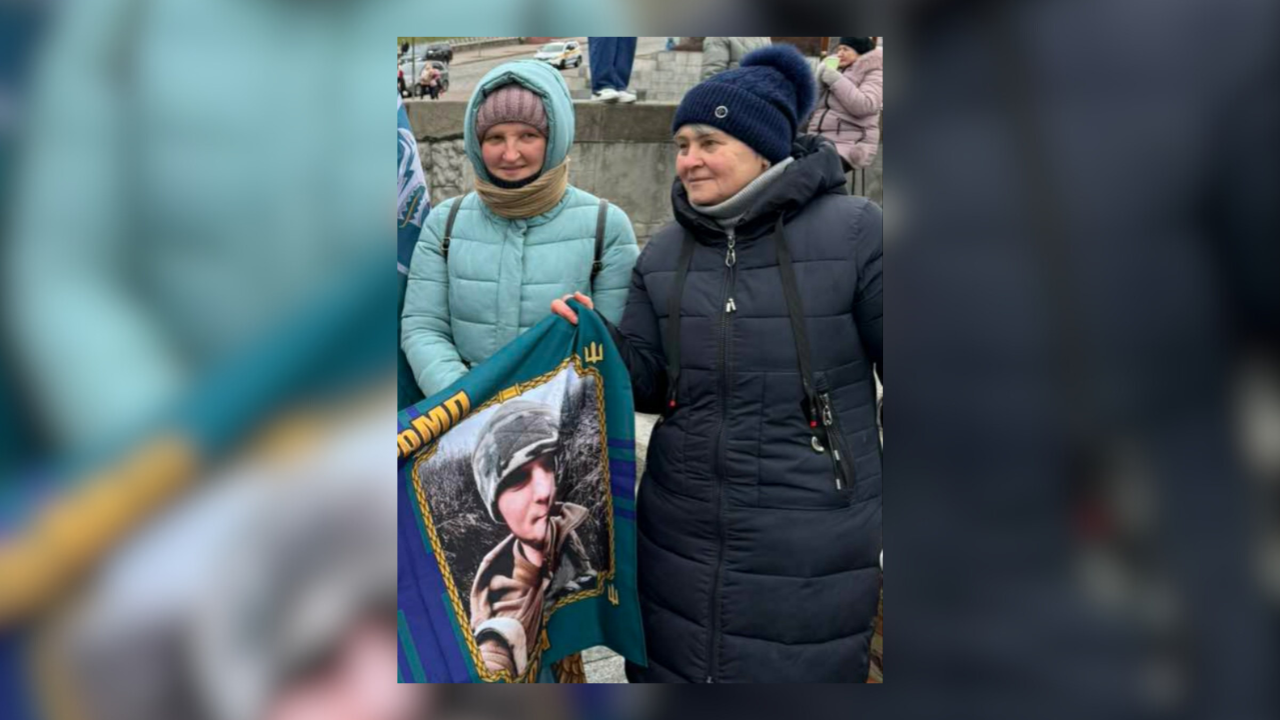
Valentyna (right), the mother of a captured marine, with her daughter Svitlana (left)
Valentyna taught her children to never give up from an early age. Despite her daughter’s disability, she encouraged her to be independent. She taught Oleksandr how to manage the household and care for his sister, so that if anything happened, the children would be able to look after one another.
“Sasha does not give up in captivity. The boys who have returned from captivity tell me he prays, has read the entire prison library, and is even learning English,” says Valentyna. “So how could I possibly give up now? I have to find a way to bring my child home while I’m still alive. I have to keep moving forward.”
Ambiguous Loss
Natalia Yavtushenko is waiting for both her father and brother to return from captivity. Her father, Oleksandr Prokofiev, was a civilian as of February 24, 2022. But when Russian forces attempted to seize his native Kharkiv, he couldn’t stay on the sidelines. He was already 60 years old at the time, but despite his age and his family’s pleas, he joined the territorial defense. Oleksandr was taken captive in March 2022.
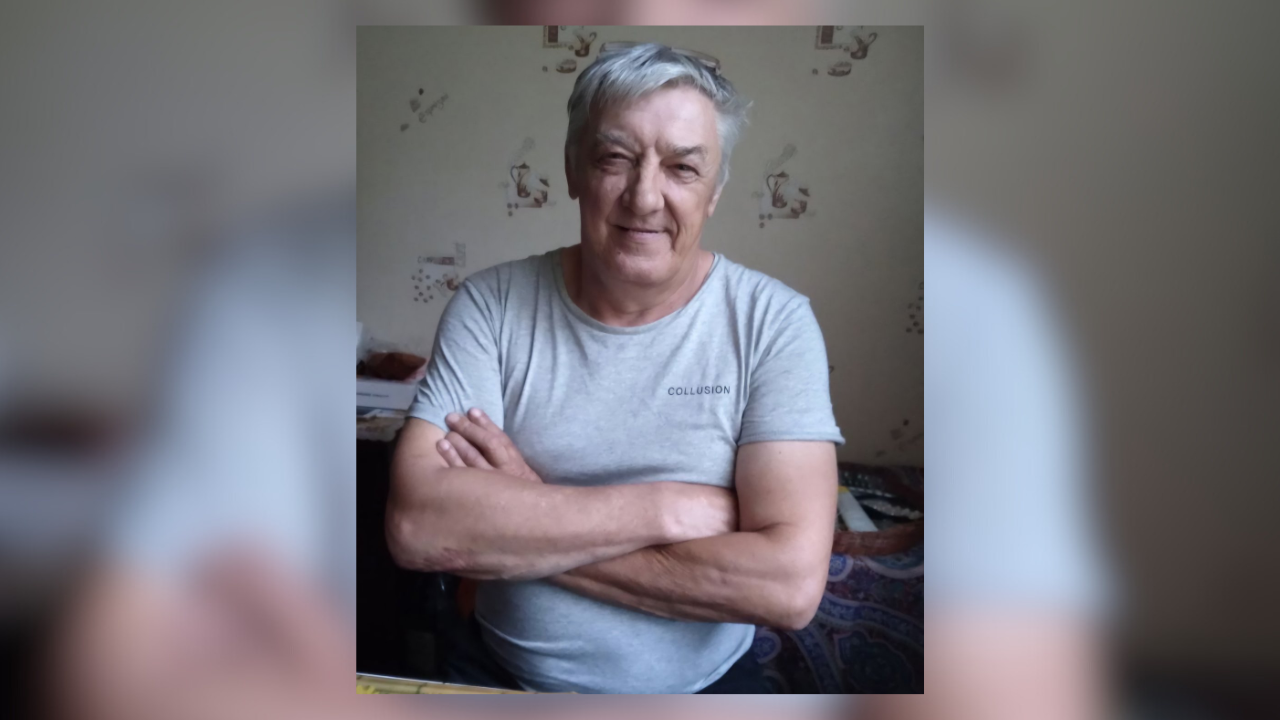
Oleksandr Prokofiev, a captured member of the Territorial Defense Forces
Natalia’s younger brother, Dmytro Prokofiev, joined the 36th Marine Brigade shortly before the onset of the full-scale invasion. He was taken captive in April 2022 during the defense of Mariupol.
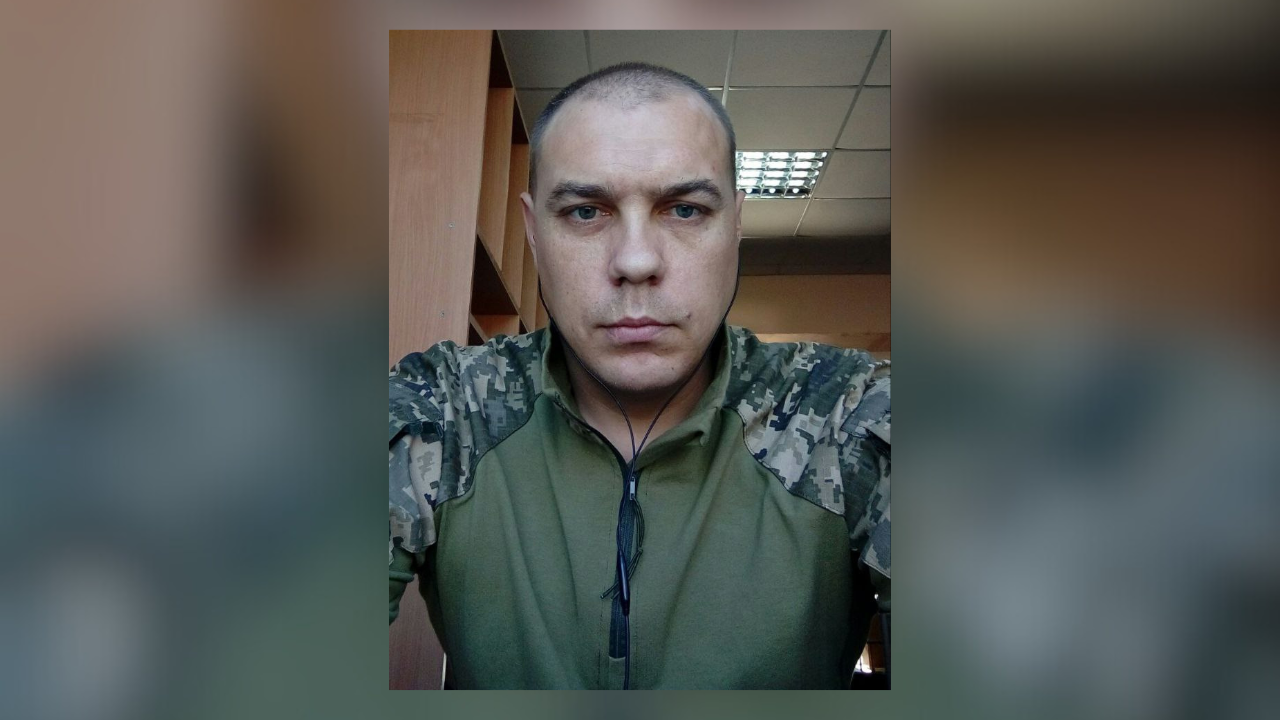
Dmytro Prokofiev, a captured marine
Natalia took on full responsibility for searching for her captured family members, doing her best to shield her mother from the harsh realities of the situation, as her mother suffers from serious chronic illnesses.
“My mother didn’t know most of what was happening, especially about the torture. I kept all of that to myself. I didn’t share it with anyone,” says Natalia.
This went on for two and a half years, until one day Natalia realized she simply couldn’t go on like that anymore. She lost a significant amount of weight and no longer had the energy to manage the basic daily tasks:
“I became like a zombie. All I wanted was to lie in bed and do nothing. I didn’t want to see anyone. I began to shut down emotionally,” she says.
Natalia’s mother and husband noticed that something was wrong and insisted that she go to the doctor.
“They recommended a good specialist. I made an appointment, told everything, and we even cried together. That’s when I was diagnosed with “ambiguous loss.” I waited far too long to ask for help. At this stage, psychotherapy alone is not enough, so I’ve been prescribed medication.”
Natalia was told that the human brain has its way of responding to the loss of a loved one. Normally, we grieve, we hold onto memories, but over time, we return to everyday life. In Nataliia’s case, her mind processes the situation as if she has already lost her loved ones, even though they are still alive. At the same time, she harbors a fear of losing them.
Natalia’s young daughter keeps her from giving up – Natalia helps her study in the first grade. At the same time, Natalia is completing her studies in web design and volunteers with the charitable foundation “Heart in Action”. Together with other families of prisoners of war, she continues to work toward bringing their loved ones home.
“I have been told that my father is hanging on by his fingertips. His blood pressure is dangerously low, and he is in pain in his legs. My brother suffers from chronic sinusitis, and without proper treatment, his condition has worsened significantly,” says Natalia.
Natalia advises other families facing similar ordeals to take care of their health. Captivity is a long and grueling process, and you have to save your strength.
This article was published with the support of the European Endowment for Democracy (EED). Its content does not necessarily reflect the official position of the EED. The views or opinions expressed herein are the sole responsibility of their authors.


